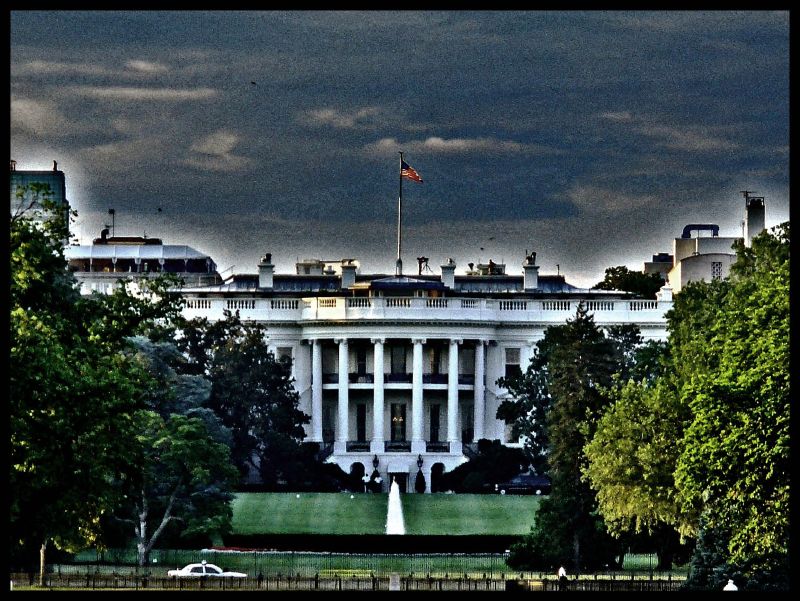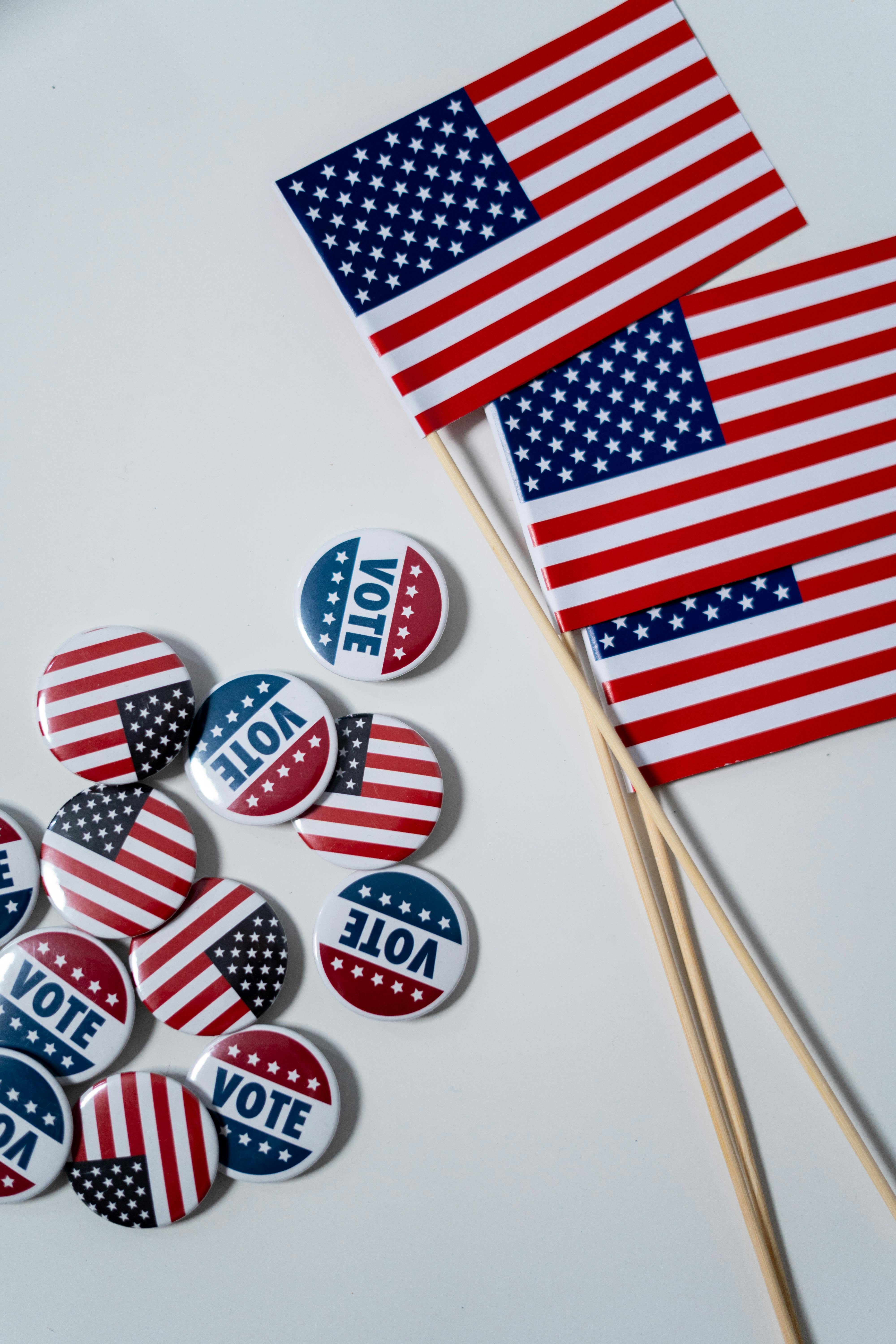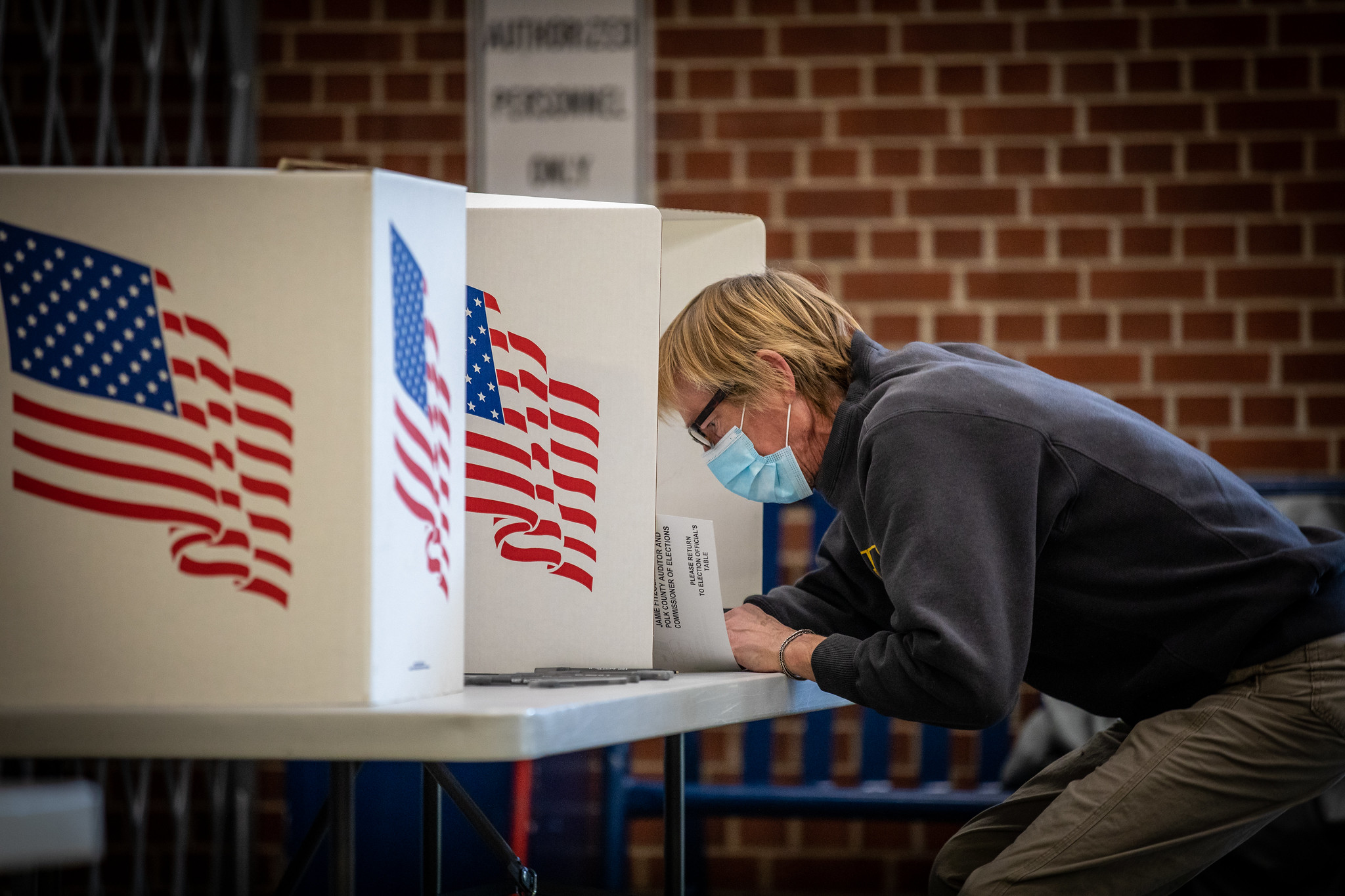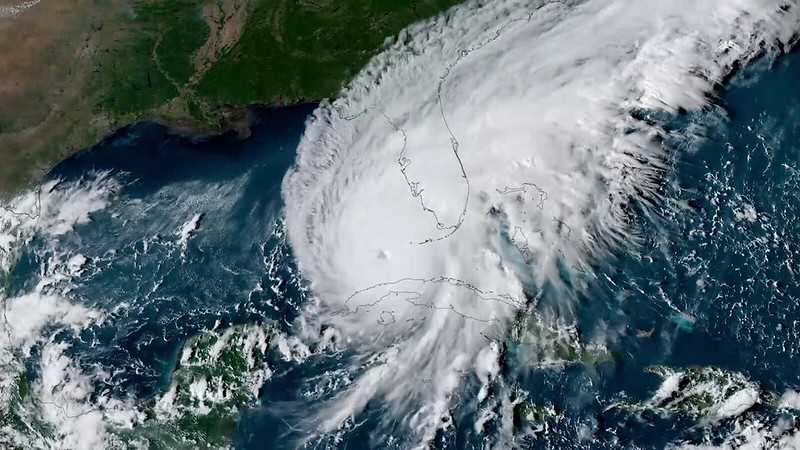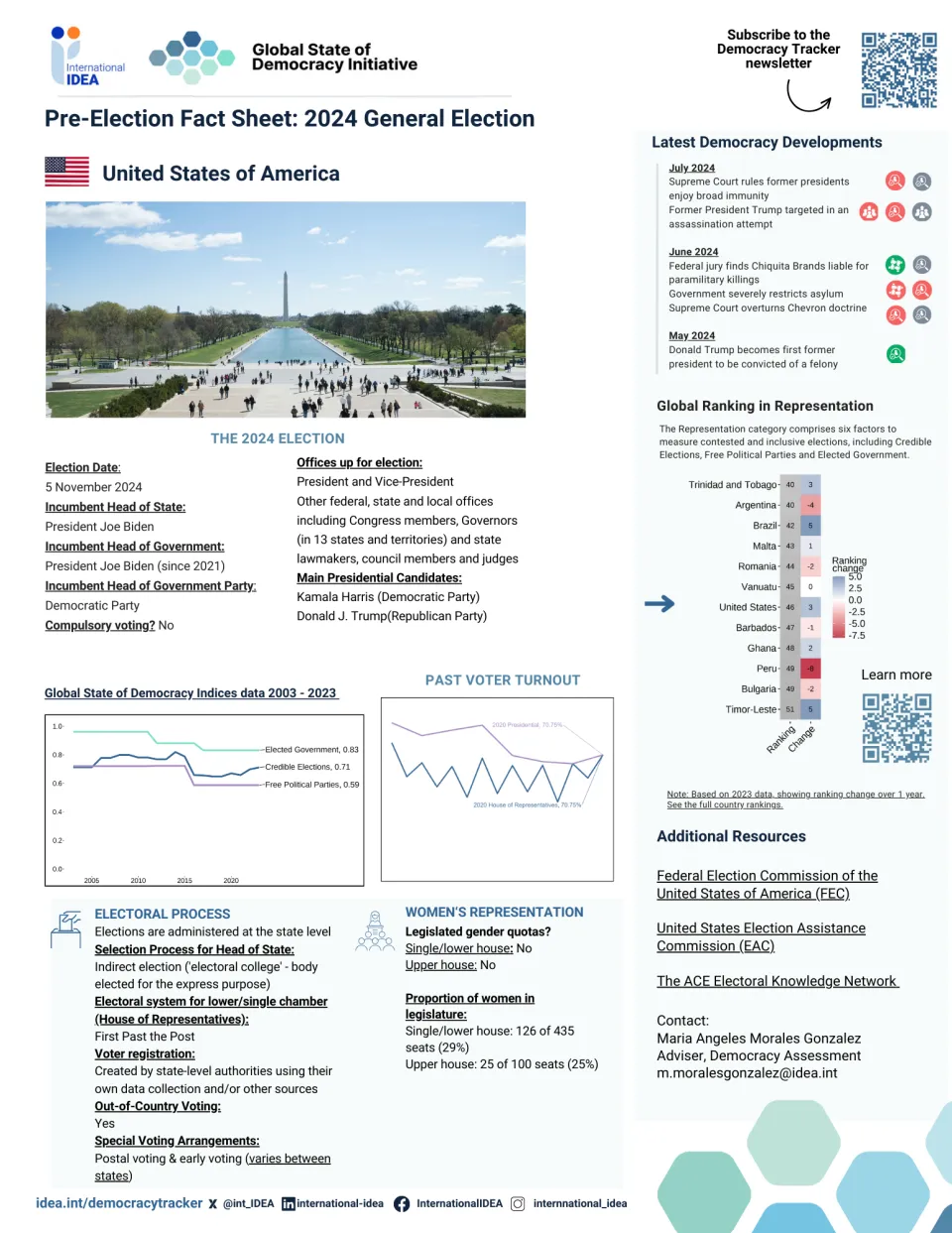
United States of America
The United States of America (the US) performs in the high range across all four categories of the Global State of Democracy framework, and among the top 25 per cent globally regarding most factors of democracy. Since 2018, it has experienced improvements in Credible Elections and Absence of Corruption and declines in Freedom of Association and Assembly and Economic Equality. With the world’s largest economy (fueled significantly by the services and industry sectors) and largest military (by expenditure), the US plays a significant economic and geopolitical role globally.
The population of the US is mostly white, with Black, Hispanic, Asian, and Indigenous minorities. Four decades of increasing income inequality have produced a wealth gap where the top 10 per cent of citizens hold 70 per cent of the wealth. Indigenous peoples in the US, especially those residing on reservations, often face stark barriers to economic opportunities and experience the highest poverty rate among minority groups. America’s long history of African slavery, racial segregation and discrimination continues to be reflected in the racial wealth gap and the disproportionate rate of Black incarceration. The country’s racial wealth gap is also expanding, and race issues have gained new political salience in recent years, especially around high-profile police killings of Black civilians. The Black Lives Matter movement gained international attention, and advocates of racial justice increasingly call for reparations.
Although several important milestones for gender equality have been achieved in the US, including the first woman of color leading a major-party presidential ticket, women’s political participation continues to lag. Women make up less than 30 per cent of lawmakers in both the House and Senate. The formal end of abortion rights has further spotlighted renewed challenges to women’s rights.
The US’s two-party system is well-entrenched and stimulates nationally competitive elections, though a long history of gerrymandering has resulted in minimally competitive legislative districts. The weakening of the Voting Rights Act of 1965 (VRA) and voter suppression through discriminatory laws and partisan gerrymandering have also threatened electoral integrity for well over a decade. The former President’s refusal to concede defeat in the 2020 election led to a violent riot at the US Capitol on 6 January 2021, and laid the groundwork for an extreme-right political movement that, to this day, denies the viability, without evidence, of the American electoral system.
Despite historically robust protections for its democratic institutions, recent decisions regarding presidential immunity and criticism of weak ethics provisions in the Supreme Court have dominated national politics. The unevenly distributed socioeconomic fallout of the 1990s rollback of the welfare state and the rise of China, weak gun control and widespread mass shootings, are other salient issues in the US.
The phenomenon of election-denial and persistent issues with voter disenfranchisement and gerrymandering are key issues to watch, due to their potential to severely impact Representation. The impact on both Representation and Participation from an ageing political class perceived as detached from voters’ concerns, will also be important to follow. The country is increasingly polarized, with levels of political violence at the highest since the 1970s. The Political Equality factor is also crucial, with emphasis on women’s reproductive rights, Economic Equality, the country’s racialized politics and immigration. Personal Integrity and Security will continue to be key as gun violence still threatens every day security around the country.
Last Updated: August 2024
https://www.idea.int/democracytracker/
February 2025
Undocumented migrants transferred to third countries and Guantanamo Bay base
Undocumented migrants have been transported to third countries and the US military base in Guantanamo Bay for their ultimate repatriation. Rights groups and family members have sued on behalf of individual migrants and challenged the deportation schemes, given their impact on migrants’ rights, particularly due process. The US has resorted to agreements with El Salvador, Honduras, Guatemala, Mexico, Costa Rica and Panama to facilitate the deportation of nationals of countries with which diplomatic relations are inexistent or tense. In Panama, a country that received people swiftly deported from the US without the ability to claim asylum, activists have denounced a lack of access to legal counsel, translation services and prolonged detention. Officials claimed those sent to Guantanamo were high-risk detainees, that is, suspected of or known to have links to criminal groups, including those designated as terrorist. However, most have not been charged or convicted of serious crimes. By early March nearly 300 migrants had been transferred to Guantanamo; most were deported but around 40 people were sent back to the US, without the government explaining the reasons.
Trump administration dismantles USAID
Following a January executive order that called for the suspension of Congress-approved foreign aid funds and the review of foreign aid programs, the Trump administration began placing thousands of employees of the US Agency for International Development on administrative leave. Despite ongoing litigation on the matter, by the end of February, officials had placed over half of USAID’s workforce of approximately 10,000 either on leave or had dismissed them, and announced only essential personnel (numbering in the several hundreds) would continue as part of the State Department. On 10 March, the Secretary of State announced the review of USAID’s programs had finalized; between 82 and 90 per cent of the agency’s programs have been terminated (representing about USD 51.6 billion in grants). According to the Secretary of State, the surviving programs would, in consultation with Congress, continue under the State Department. Despite USAID being a congressionally created agency, Republicans who hold a majority in both chambers have not pushed back on its dismantling.
Sources: TIME, ABC News, BBC, Just Security
Associated Press journalists barred from Oval Office and other White House events
The Associated Press (AP) journalists have been barred from accessing Oval Office and other White House events, as well as from boarding the presidential plane as part of the press pool, due to the AP’s editorial decision to continue referring to the ‘Gulf of Mexico’ with its original name, after the Trump administration issued an executive order to rename it as the ‘Gulf of America’. The AP filed a lawsuit against the government, claiming both free speech and due process violations. Litigation is ongoing.
Sources: Associated Press (1), Associated Press (2) Just Security, The White House, The Conversation
Trump administration pauses enforcement of Foreign Corrupt Practices Act
President Donald Trump issued an executive order (EO) on 10 February, directing the Attorney General to pause the enforcement of the 1977 Foreign Corrupt Practices Act (FCPA) for 180 days. The FCPA was enacted with the objective of banning US companies, subsidiaries and other enterprises and individuals with ties to the US from offering or paying bribes to foreign officials. Critics of the FCPA have argued the legislation leaves American companies in an unfavourable position in markets where payments to officials are commonly conducted to facilitate business. President Trump has voiced opposition to the law since his first term, considering US companies are unable to compete on a level playing field with foreign enterprises. Days before the EO was issued, the Attorney General had issued a memorandum, prioritizing investigations into bribery that benefited cartels and terrorist organizations. While the EO only temporarily freezes the FCPA, it may undermine anti-corruption efforts at the domestic and international levels.
Sources: The White House, Voice of America, Just Security, CBS News, Reuters
January 2025
Far-reaching executive orders significantly damage the separation of powers
Following his inauguration on 20 January, President Donald Trump embarked on a far-reaching effort to change the way that the United States government functions, principally through Executive Orders (EOs). On the day of the inauguration, President Trump signed 26 EOs; he had signed 46 by the end of January. While the use of EOs is not unique to this administration, the powers claimed by the President in many of these orders are nearly unprecedented in US-American history. The EOs that have ordered the government to halt disbursements of funds appropriated by Congress have relied on claims of executive power to intervene in the budgetary process that far exceed what has been permitted under the Congressional Budget and Impoundment Control Act (ICA) of 1974. EOs and memoranda halting the disbursement of congressionally appropriated funds for services provided by states (such as Medicaid) and official development aid distributed by agencies such as USAID were suspended through emergency orders granted by federal courts, but not before they generated destructive levels of uncertainty for the agencies affected. The lack of response from Congress to this erosion of its constitutionally mandated powers has signalled the majority’s willingness to cede these powers to the executive branch.
The President has also delegated a great deal of policy-making power to a newly established agency called the Department for Government Efficiency (DOGE). This agency is functionally led by businessman Elon Musk, although his only formal role in the US government is as an advisor to the President. The vast powers to intervene in government departments that President Trump has delegated to this agency have generated significant problems for democratic accountability and have introduced damaging levels of arbitrariness in the functioning of the government.
Many of the EOs have been challenged in legal proceedings, contributing to further uncertainty about the content of the law and US government policy until these cases are resolved.
Sources: Federal Register, Congressional Budget and Impoundment Control Act, Public Broadcasting Service, National Public Radio, American Broadcasting Company News, Just Security
Trump and Biden grant multiple pardons on inauguration day
On 20 January, President Trump issued an executive order commuting the sentences of 14 people convicted of crimes related to the January 6 riots (members of extremist organizations Proud Boys and Oath Keepers) and granted pardons to the rest of January 6 defendants (which exceed 1,500 people), including people charged or convicted of violence against police and media and seditious conspiracy. Across the political spectrum, politicians and experts have denounced the blanket pardons for their incompatibility with accountability and the rule of law.
Before leaving office, President Biden pre-emptively pardoned the members and staff of the congressional committee that investigated the January 6 riot (as well as Capitol and D.C. police who testified), and General Mark Milley and Dr. Anthony Fauci. He also pre-emptively pardoned five members of his family, citing the risk of them facing politically motivated prosecutions.
Sources: The White House, The Washington Post, NBC, Reuters, CNN, Biden White House Archive (1), Biden White House Archive (2)
Controversial act concerning criminal charges against migrants signed into law
On 29 January, President Donald Trump signed the Laken Riley Act into law. This piece of legislation establishes that undocumented migrants who are charged with crimes that involve injury or death, but also non-violent crimes such as shoplifting, should be detained and deported by federal officials, even without a conviction. It also enables state attorneys general to file lawsuits against federal government immigration enforcement policy (for example regarding the release or decision not to detain certain undocumented migrants, such as non-violent offenders). Named after a nursing school student killed by a Venezuelan migrant, the piece of legislation received bipartisan support in both chambers of Congress, although it was opposed by a majority of Democrats. It received widespread criticism, as due process guarantees and presumption of innocence are not duly considered in its provisions, and for the impact it will have on community members, including DACA (Deferred Action for Childhood Arrivals) recipients.
Sources: U.S. Congress, AP News, ACLU, NPR, CNN
Executive orders significantly impact migrants, asylum seekers and refugees
President Donald Trump has moved to significantly restrict immigration and the right to seek asylum. Through executive orders, the Trump administration has declared the situation at the southern border to be a national emergency, directing the armed forces to repel undocumented migration (along with trafficking in persons and narcotics). The orders further call for the evaluation of visa programs, significantly restrict access to legal status and humanitarian protection, ending parole for migrants from Cuba, Haiti, Nicaragua and Venezuela, whose legal status is now uncertain. They also suspend refugee resettlement and most decisions on applications for refugee status. Executive orders that in the previous administration sought to facilitate the reunification of migrant families have been rescinded. The move to restrict birthright citizenship, excluding children born to undocumented migrants has been particularly controversial. Rights organizations, local officials and religious organizations have filed lawsuits to challenge the constitutionality of these orders.
Sources: NBC, ProPublica, Just Security
Executive orders direct reversals of diversity and inclusion policies
Executive orders issued in January determine that the US policy will be to only recognize the male and female sex, rejecting the concept of gender identity. Government-issued identification and paperwork will no longer reflect a person’s gender identity and federal agencies have been directed to issue guidance ‘protecting sex-based distinctions’ and access to single-sex spaces in settings such as prisons (where gender-affirming care will no longer be supported), detention centres and shelters. A specific order further prevents transgender people from serving in the military.
Additional executive orders have ended 'diversity, equity, and inclusion’ (DEI) and ‘diversity, equity, inclusion and accessibility’ (DEIA) programs, which have been characterized by the Trump administration as illegal discrimination. This includes the termination of all DEI, DEIA and ‘environmental justice’ positions and of the hiring of federal officials pursuant to DEI. The orders have been challenged before the courts, and in the interim have created a great deal of uncertainty for those affected by the orders.
Sources: NBC, Just Security
TikTok ban delayed after executive order

An executive order issued by President Donald Trump on 20 January instructs the Attorney General not to enforce a divest-or-ban legislation regarding social media platform TikTok, for 75 days. Legislation enacted in April 2024, expressly classified TikTok as a “foreign adversary controlled application”, citing national security and data-collection and privacy. The platform petitioned for review before the Court of Appeals of the D.C. Circuit, challenging the constitutionality of the legislation on First Amendment grounds. After the D.C. Circuit denied the petition, TikTok appealed to the Supreme Court. On 17 January, the Supreme Court upheld the Protecting Americans from Foreign Adversary Controlled Applications Act, reasoning that Congress’s worries regarding national security over the platform’s data collection and relationship to China did not violate TikTok’s First Amendment rights. However, President Trump’s executive order has enabled the app to continue functioning in the United States.
Sources: The White House, U.S. Supreme Court, CNN, New York Times
Inspectors General are dismissed from federal agencies
The Trump administration dismissed 18 federal agency Inspectors General (IGs) from their posts through email notifications from the White House Office of Presidential Personnel. IGs are independent oversight officials within federal agencies, tasked with identifying potential misconduct or abuse. Pursuant to the Inspector General Act, the removal of IGs from their posts requires Congress to be notified 30 days in advance, and that substantive and case-specific reasons are laid out to justify the removal. A group of eight IGs filed suit to challenge the legality of the dismissals, under the Inspector General Act, with the case still ongoing. The mass removal of IGs raises concerns that anti-corruption efforts will be weakened.
Sources: The Guardian, New York Times, Associated Press, New York City Bar, Just Security
November 2024
Controversial terror-financing bill is passed in the House

On 21 November, the House of Representatives passed the “Stop Terror-Financing and Tax Penalties on American Hostages” bill. Among other aspects, the bill would enable the Treasury Secretary to strip tax-exempt status from non-profit organizations that are deemed to support terrorism. The fact that Treasury would not have to disclose the reasoning or evidence in support of its decisions, and that non-profits would have 90 days to provide evidence to disprove accusations against them, has raised concerns over potential due process violations, including shifting the burden of proof. Experts and hundreds of civil society organizations worry that, if passed, the bill would have a chilling effect on civil society, news outlets, universities and any other tax-exempt organizations, in addition to considering many of its provisions redundant, as support for terrorism is already a felony in the United States. The bill has now been received in the Senate for discussion.
Sources: U.S. Congress, ACLU, AP News, The Conversation, Council on Foundations
Donald Trump elected president, Republicans win control of Congress

On 5 November Donald Trump was elected president after winning 312 electoral votes (and 49.9 per cent of the popular vote), compared to the Democratic candidate Kamala Harris’s 226 electoral votes (and 48.4 per cent of the popular vote). The latest data suggests voter turnout was high, at 63.8 per cent, but lower than the 2020 election (66.8 per cent).
The Republican Party won a majority in the Senate, with 53 out of 100 seats. Republicans further won a slim majority in the House of Representatives, with 220 seats to the Democrats’ 215. Women’s representation in Congress has not significantly changed. The number of women in the Senate is expected to be maintained at 25, and in the House between 124 and 127 representatives will be women (currently, 127 representatives are women).
Sources: AP News, CNN, NY Times, Carnegie Endowment, NPR, U.S. Census Bureau
July 2024
Supreme Court rules former presidents enjoy broad immunity
On 1 July, the Supreme Court ruled that former President Donald Trump enjoys broad immunity from criminal prosecution. The decision was delivered regarding the charges brought against him for conspiracy to overturn the results of the 2020 election. The Court’s conservative majority determined that immunity for the exercise of core constitutional powers is absolute, while other acts carried out in an official capacity are protected by at least presumptive immunity. According to the Court, such immunity is necessary for both the separation of powers and the effectual working of the executive branch. It added that former presidents are not immune regarding unofficial acts. In the election subversion case, the Court concluded that allegations in the indictment related to discussions with Justice Department officials are covered by absolute immunity; most others are protected by presumptive immunity, but the determination of whether they involve official or unofficial acts must be considered by the District Court. The ruling further severely restricts the ability of prosecutors to present evidence. Dissenting justices and many constitutional experts strongly criticised the ruling for placing the president above the law and out of reach of accountability.
Sources: Supreme Court of the United States, Washington Post, Brennan Centre, NPR
Former President Trump targeted in an assassination attempt

On 13 July, former President Donald Trump was targeted and injured in an assassination attempt during a campaign rally held in Pennsylvania. A supporter seated behind Trump was fatally shot and two others were wounded. According to officials, the gunman, who was killed by a Secret Service agent responding to the attack, did not have an evident political leaning or ideology. Although officials did not rule out domestic terrorism, a motive for the assassination attempt has not been disclosed. The attack prompted harsh criticism of the Secret Service, whose director resigned on 23 July, amidst fallout from the security failures at the rally.
Sources: Politico, CNN, The Washington Post
See all event reports for this country
Global ranking per category of democratic performance in 2023
Basic Information
Human Rights Treaties
Performance by category over the last 6 months
Blogs
Election factsheets
Global State of Democracy Indices
Hover over the trend lines to see the exact data points across the years
Factors of Democratic Performance Over Time
Use the slider below to see how democratic performance has changed over time
